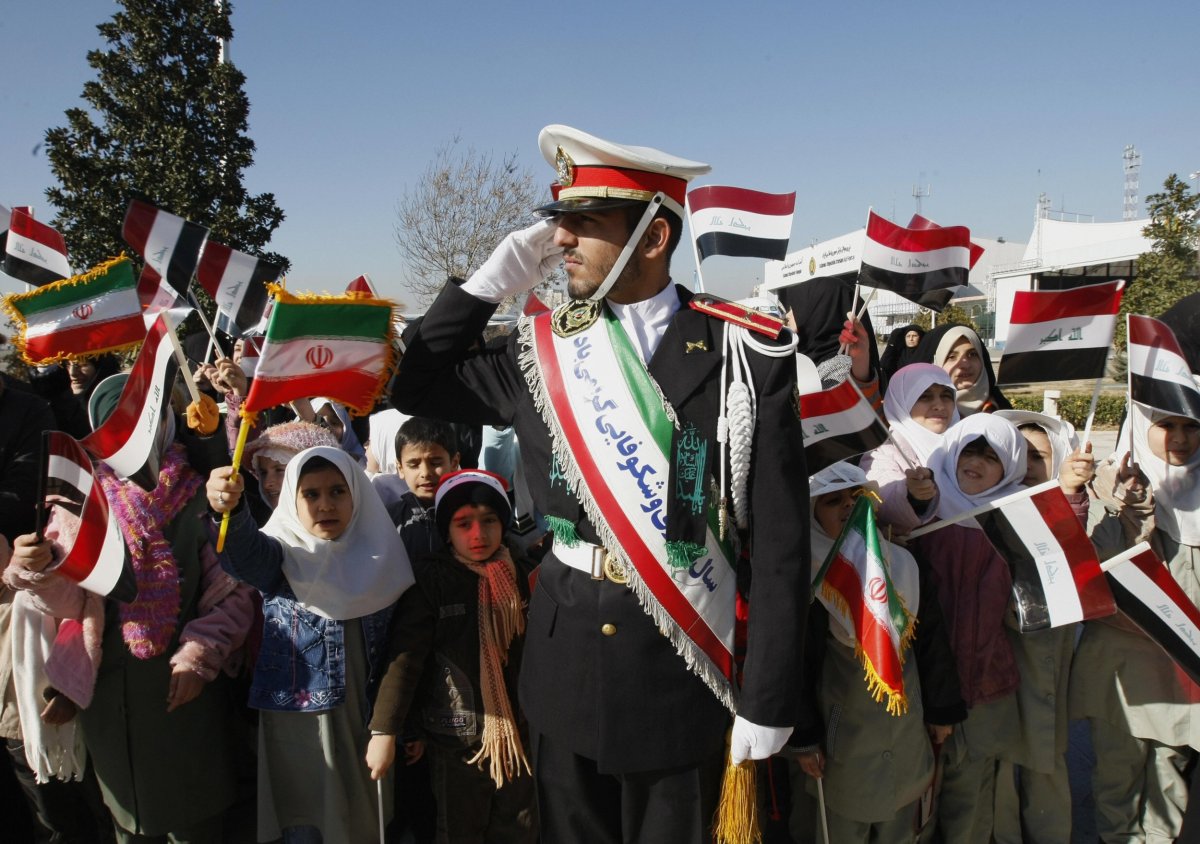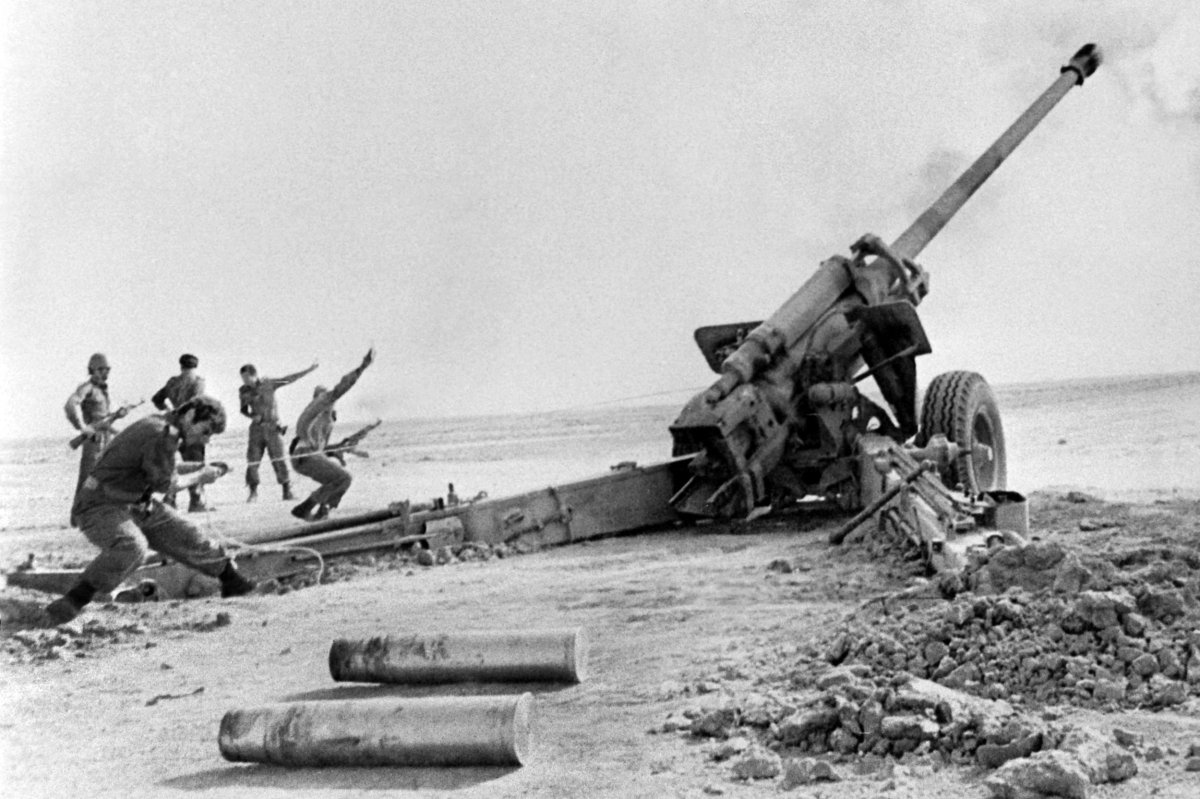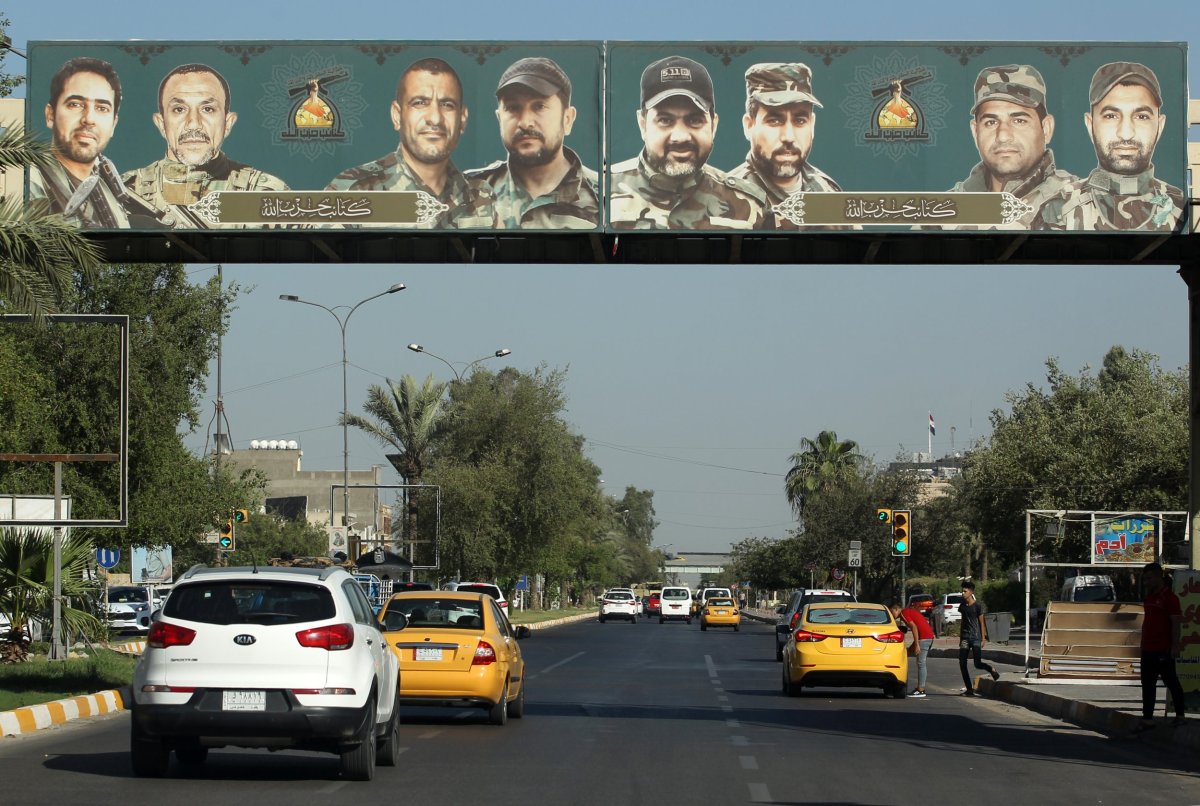Iran and Iraq fought a bloody eight-year struggle that ended in a stalemate 30 years ago Sunday, only to become close allies in the region today—a situation that often leads to trouble for U.S. policy in the Middle East.
As President Donald Trump attempts to enforce unilateral and internationally unpopular U.S. sanctions against Iran, he has been met with resistance from Iraq, which considers itself an ally of both countries. Iraqi Prime Minister Haider al-Abadi has attempted to carefully balance between the U.S. and Iran, but his political coalition suffered deeply in recent elections and the outcome of the U.S.-Iran dispute could determine his successor's relationship with both governments. At the same time, a relatively liberal Iranian President Hassan Rouhani has been pushed increasingly closer toward his hard-line rivals, as diplomatic and economic prospects of a historic 2015 nuclear deal with the U.S. were dashed.
The dynamics between Iran and Iraq far predate the current equation, however. As National Iranian American Council research associate Sina Toossi told Newsweek, "the two neighbors have been bound by deep cultural, commercial and religious ties for centuries."
The story of why the two modern states went to war and how they view the U.S. was shaped by a series of 20th- and 21st-century events that rocked the region and the world.

After World War I, Iraq was seized from the Ottoman Empire by the United Kingdom and turned into a colonial mandate. While Iran has never officially come under the control of a foreign power, it was heavily influenced by the U.K. and Russia at the time; Nazi Germany also established strong political ties with its ruling monarchy ahead of World War II. Iranian Shah Reza Khan was forced to abdicate by the Allied Powers after the war and was replaced by his son Mohammad Reza Pahlavi, who steadily consolidated his power with the support of the West.
In the early 1950s, Iran's democratically elected Prime Minister Mohammad Mossadegh successfully challenged the shah's absolute power in an attempt to nationalize the country's oil industry. The move angered the U.K., which appealed for U.S. help in squashing his initiative, which it did via a CIA coup against Mossadegh in August 1953, reasserting Pahlavi's total control. Iraq did, however, successfully oust Western influence in 1958 with the violent overthrow of King Faisal II at the hands of General Abd al-Karim Qasim. The new Iraqi leadership established new territorial claims against Iran.
"After Iraq's 1958 revolution the Iraqi leader, General Abd al-Karim Qasim, declared that Iran's southwestern province of Khuzestan and the Shatt al-Arab river (which Iranians refer to as Arvand Rud) belonged to Iraq," Toossi said. "This laid the groundwork for escalating tensions between the two sides, and formed the pretext for Saddam Hussein's invasion of Iran in 1980."
With Qasim himself being ousted and executed in a 1963 coup orchestrated by Baathist leader Ahmed Hassan al-Bakr, Saddam Hussein became an increasingly prominent figure in Iraq. Iran was going through its own major changes, and, in 1979, the Islamic Revolution ended the shah's dynasty, replacing it with a theocratic leadership headed by Ayatollah Ruhollah Khomeini. As the move sent shock waves throughout the Muslim world, that same year, Hussein took the helm in Iraq and decided to take action against the burgeoning Shiite Muslim power next door.

The Iran-Iraq War lasted from 1980 through 1988, and the U.S. covertly supported both sides of the conflict. The U.S. publicly chose Hussein's side as the taking of hostages at the U.S. Embassy by Khomeini's supporters led to the severing of ties between Washington and Tehran. At the same time, the U.S. secretly sold arms to Iran with the intent of using the funds to back anti-communist insurgents in Nicaragua in a scandal that became known as the Iran-Contra Affair. Its architect, then–National Security Council staff member Oliver North, was chosen as the new president of the National Rifle Association in May of this year.
Hundreds of thousands of troops and civilians on both sides were killed, with ethnic minorities sometimes siding with invading forces and the prominent use of World War I tactics such as chemical weapons and trench warfare. It ended with a U.N.-brokered ceasefire on August 20, 1988, and no clear victor. Two years later, Hussein again acted on extraterritorial claims by invading neighboring Kuwait, which he accused of stealing Iraqi oil, and moved on to Saudi Arabia, prompting U.S. military action.
The U.S. quickly defeated Iraq and began imposing heavy restrictions on the country, forcing it to forfeit its chemical weapons arsenal under U.N. supervision and no-fly-zones to shield Kurdish and Shiite Muslim communities. Washington and the Pentagon increasingly called for Hussein to be removed from power, and those voices were amplified with the 2000 election of George W. Bush, who declared both Iran and Iraq—along with North Korea—to be part of an "Axis of Evil." Cheered on by hawks such as then–Under Secretary for Arms Control and International Security Affairs John Bolton—who has since been appointed as Trump's national security adviser—the U.S. charged Iraq with failing to disarm its weapons of mass destruction program and invaded in 2003.
While those accusations later proved to be false, the U.S. again defeated the Iraqi military and this time overthrew the government. The Baathist, Sunni Muslim-dominated leadership was replaced in 2005 with a majority-Shiite Muslim government reflective of the country's religious demographics, and ties to Iran quickly flourished just as the U.S. began gearing up on new sanctions targeting Tehran over its nuclear program. Iran began investing in Iraq's stabilization and offered extensive support to combat the Islamic State militant group (ISIS) after they evolved from jihadi groups that emerged in the wake of the U.S. invasion. Both U.S. and Iranian support helped the Iraqi military and its local allies overcome a jihadi takeover, but the two international powers have only grown increasingly hostile toward each other in recent months.

Since Trump's withdrawal from the 2015 Iran nuclear agreement that marked the first major diplomatic breakthrough between the two countries since they fell out in 1979, the White House has ramped up efforts to isolate Tehran from the international community. In addition to reinstating and expanding sanctions over a nuclear program the country has always maintained was for nuclear purposes, the U.S. has accelerated opposition to Iran's backing of Shiite Muslim militias across the region, including Syria, where they are battling ISIS and insurgents. Secretary of State Mike Pompeo recently announced the establishment of an "Iran Action Group" on the 65th anniversary of the U.S.-led coup that reinstated Iranian Shah Pahlavi.
As the new Iran sanctions came into effect earlier this month, Abadi deeply criticized them while agreeing to "reluctantly" comply with the measures during a press conference. Iraqi President Fuad Masum told news outlet Al-Hurra that "the nature of Iraq's relations with Iran, along with their mutual interests, will make it difficult for Iraq to abide by these decisions." Last week, Abadi clarified his position and denied saying he would follow Trump's sanctions, claiming he only intended to forego the use of U.S. dollars in transactions with Iran, with which he said Iraq had a "privileged relationship."
Iraq deeply depends on Iran for energy as well as security. Swelling demonstrations over poor government services and unemployment have plagued Abadi's caretaker administration as the country copes with the unexpected fallout of a May election won by an old U.S. foe, Muqtada al-Sadr. The influential Shiite Muslim cleric once led insurgents against the U.S. military occupation in Iraq, but he has more recently warned against an overbearing Iranian influence in the country as well. As Iraq's next government coalesces, the U.S. is attempting to maintain a stake in the country's political future at the expense of Iran, something Tehran is likely to fight for.
"Given the turbulent state of Iraqi-Iranian relations from 1958 to 2003, Iran has a vested interest in Iraq's political structure remaining friendly," Toossi said.
Uncommon Knowledge
Newsweek is committed to challenging conventional wisdom and finding connections in the search for common ground.
Newsweek is committed to challenging conventional wisdom and finding connections in the search for common ground.
About the writer
Based in his hometown of Staten Island, New York City, Tom O'Connor is an award-winning Senior Writer of Foreign Policy ... Read more
To read how Newsweek uses AI as a newsroom tool, Click here.








